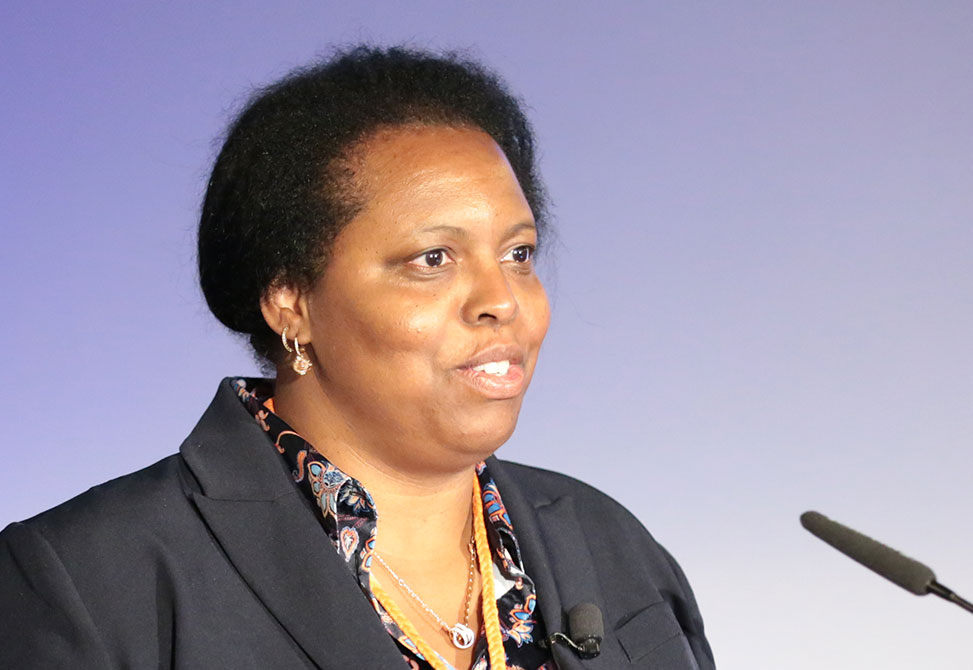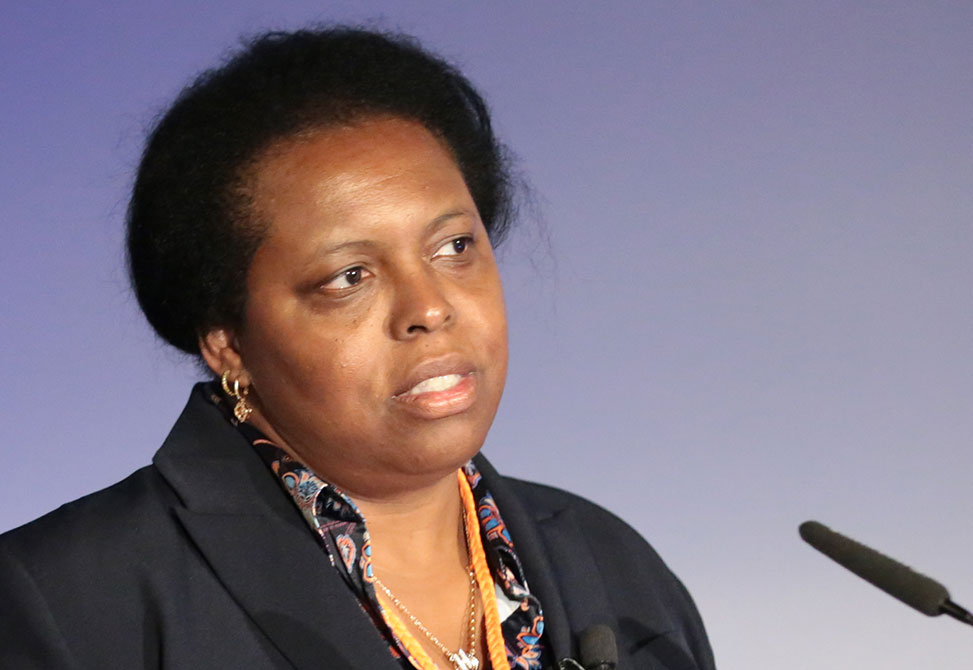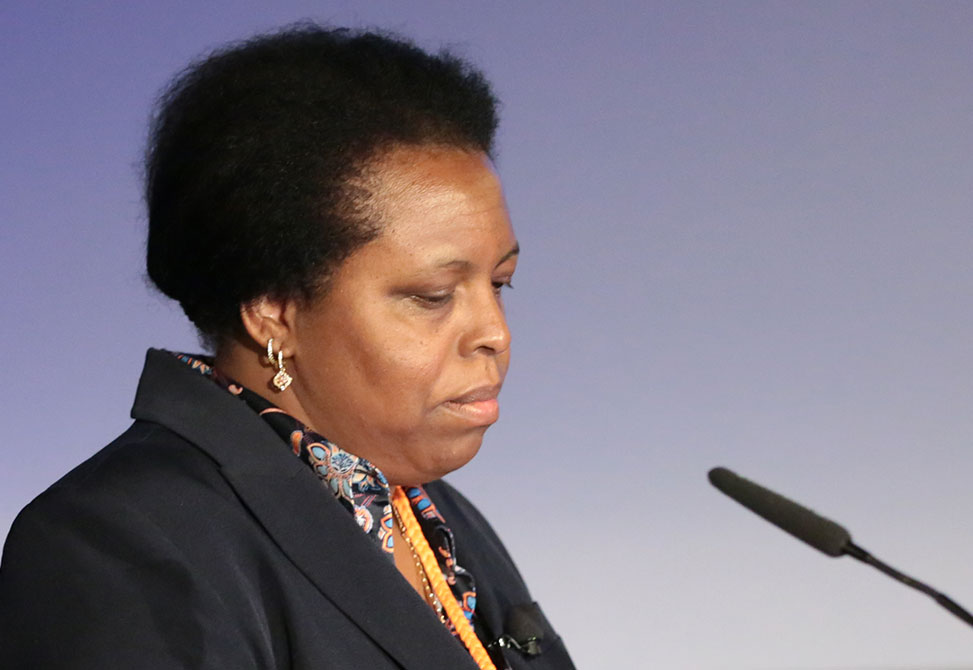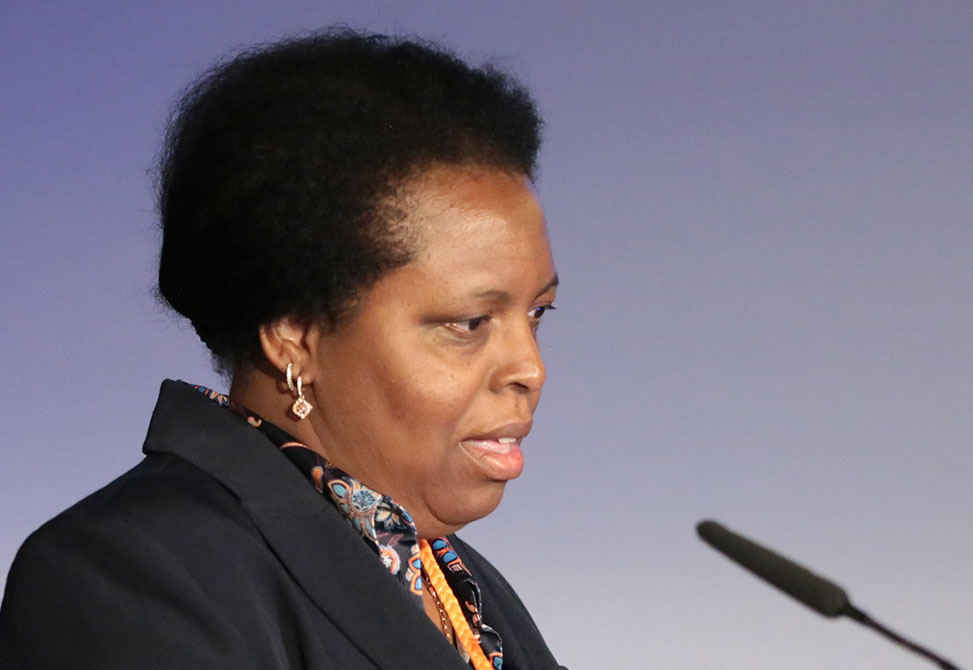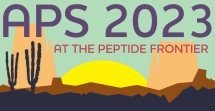Karen Akinsaya
Schrödinger
Talk Title
Computational Peptide Design Advances: Past, Present, and Future
Presentation Time
SESSION 13: NEW FRONTIERS IN COMPUTATIONAL PEPTIDE DESIGN PART 2
Thursday, June 29, 2023, at 10:25 am - 10:50 am
Designing therapeutic peptides that adhere to a range of target product profile criteria is a multiparameter optimization, MPO, problem that is challenging to solve when programs are restricted to a relatively limited number of design ideas.
This talk will address advances in the development and cloud-based deployment of atomistic physics-based computational approaches, which are having an increasing impact on drug discovery in the biopharmaceutical industry. Combining these methods with broader access to experimental ligand-bound structures and computational protein structure models has enabled advances in understanding structure-function relationships and the design of peptide therapeutics for a range of molecular targets from GPCRs to protein-protein interactions. Small-molecule therapeutics have benefited from the availability of accurate computational methods that predict the binding mode and affinity of ligands to their protein targets and other physics-based properties.
With increasing focus on the development of peptide-based therapeutics, including peptidomimetics and macrocycles, which are usually larger and more conformationally flexible than traditional drug-like molecules, atomistic physics-based and structure-based approaches can be applied or adapted for use in the identification and optimization of peptide ligands for proteins. These include molecular docking, relative binding free energy predictions, conformational searches, and structural refinement. For example, refined high- resolution cryogenic-electron microscopy, cryoEM, structures of active-state GPCRs in complex with G-proteins and ligands complemented by molecular dynamics simulations and binding or functional assay data provide key insights into ligand recognition and receptor activation to inform structure-based peptide design.
Karen Akinsanya, President of R&D, Therapeutics, joined Schrödinger in 2018. She leads the company’s therapeutics group which is responsible for preclinical drug discovery, translational research, and early clinical development, in addition to drug discovery business development and collaborations.
Karen has more than 25 years of experience in academia, pharmaceutical R&D, partnerships, and licensing. Karen joined Merck Research Labs in 2005 and held positions of increasing responsibility in clinical pharmacology as a development team leader working on first-in-human studies through late-stage label studies before joining Discovery Preclinical & Early Development as a therapeutic area lead and then a search and evaluation lead in business development.
Karen received her Ph.D. from the Royal Postgraduate Medical School at Imperial College in London, in endocrine physiology. After post-doctoral training at Imperial and the Ludwig Institute for Cancer Research, UCL, Karen joined Ferring Pharmaceuticals in R&D working across sites in the UK and US. At Ferring, she led the discovery of a family of dipeptidyl peptidases related to DPPIV and pre-clinical characterization of FDA-approved FIRMAGON® for prostate cancer.

